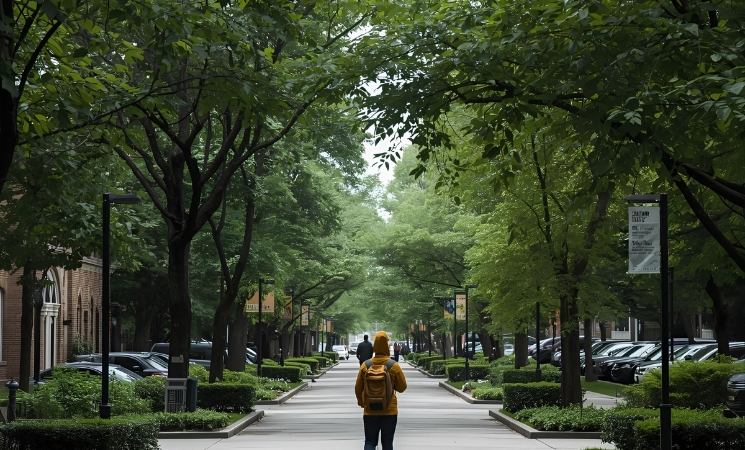The college campuses of today have become catalysts for real-world change. With environmental concerns growing ever more pressing, universities across the country have been prompted to respond with innovative, campus-wide sustainability strategies. These efforts are reshaping how students live, learn, and lead. From eco-conscious construction and renewable energy use to smarter waste systems and sustainable dining, here’s how institutions of higher learning are going green and inspiring the next generation to think critically about their environmental impact.

Utilizing Green Building Techniques
Colleges are transforming their infrastructure by embracing sustainable architecture and design, either by constructing or retrofitting buildings. New construction projects often aim for LEED certification, prioritizing energy efficiency, reduced emissions, and low-impact materials.
From solar panels and rainwater harvesting systems to energy-smart HVAC and lighting, these buildings are designed to minimize their environmental footprint. A growing number of campuses are pioneering the way to a more sustainable built environment with dozens of high-performance, eco-conscious facilities that prove green design is both practical and forward-thinking.
Implementing Sustainable Transportation Initiatives
Universities are also rethinking how students and staff move from point A to B. Many are introducing electric shuttle buses, campus-wide bike-sharing programs, and carpool coordination tools to reduce reliance on single-occupancy vehicles. Expanded walkways and designated cycling lanes also make it easier (and safer) to ditch the car. To encourage participation, some schools offer perks like discounted transit passes for choosing eco-friendly commuting options.
Redefining Campus Waste Management
Sustainable waste disposal is another area where colleges are making measurable progress, improving sustainability efforts by rethinking how they handle trash. Modern campuses are embracing smarter, greener disposal systems that prioritize reuse, recycling, and education. Popular initiatives include:
- Clearly labeled stations for recycling, composting, and landfill waste placed in high-traffic areas.
- Campus-wide campaigns and zero-waste events that teach students how to sort and dispose of items responsibly.
- Collaborations with eco-conscious waste removal companies that excel at proper recycling and minimizing landfill contributions.
By choosing sustainable disposal solutions and ensuring that waste is processed at environmentally friendly facilities, colleges are making major strides in reducing their carbon footprint and setting a powerful example for their communities.
Switching to Eco-Friendly Dining Programs
Even dining halls are not exempt from major changes intended to reduce their environmental footprint. A great deal of universities now prioritize locally sourced ingredients, seasonal menus, and expanded plant-based meal options to support both sustainability and student wellness.
Composting programs for food scraps are increasingly common, helping to divert organic waste from landfills. Additionally, campuses are phasing out single-use plastics and adopting trayless dining policies, which have been shown to cut down on food waste and water consumption significantly.
Embedding Sustainability in Education and Campus Life
Sustainability is no longer limited to operations. It’s becoming a central part of the academic and social experience of college. Universities are incorporating environmental themes into a wide range of courses and expanding degree programs focused on sustainability.
Students are also getting hands-on experience through campus gardens, eco-focused clubs, and green innovation challenges. Initiatives like residence hall energy competitions and sustainability-focused internships empower students to take meaningful action.
Conclusion
From classrooms to construction sites, today’s college campuses are evolving into champions for sustainability. By embracing forward-thinking practices from clean energy and green buildings to waste-conscious operations and engaged student leadership, universities are preparing students for the future while actively shaping it.















Leave a Reply